
Conventional wisdom holds that, of the six species of deer encountered wild in Britain today, only two — the roe and red — are native to these islands. While true on the face of it, that represents only part of the full picture. A considerable proportion of the roe deer emerging at dawn on to a forest ride, or sunning themselves among the drifts of bluebells, bear little or no connection to the roe that roamed the broadleaved forests of Britain 5,000 years ago.
When the ice sheets of the last glaciation retreated and waves of temperate plants and animals moved northwards across the land bridge that then connected Britain and continental Europe, roe were among them. During the ice age, they, along with other deer species, had been confined to ‘refugia’ in the warmer regions of southern and south-eastern Europe, and it was these pioneer animals that became part of the truly natural fauna of the British Isles.
It is only in recent years that genetic science has been able to determine accurately the origins of our roe deer, but the ability to extract DNA from ancient bones has indeed determined that Britain’s roe followed this route across northern Europe. The British population underwent a rapid expansion during an establishment period between 5,000 and 6,000 years before present, then beginning to stabilise from about 4,000 years before.
In the 1300s, roe were downgraded from a ‘beast of the forest’ to a ‘beast of the warren’
Up and down
Diese Geschichte stammt aus der June 16, 2021-Ausgabe von Shooting Times & Country.
Starten Sie Ihre 7-tägige kostenlose Testversion von Magzter GOLD, um auf Tausende kuratierte Premium-Storys sowie über 8.000 Zeitschriften und Zeitungen zuzugreifen.
Bereits Abonnent ? Anmelden
Diese Geschichte stammt aus der June 16, 2021-Ausgabe von Shooting Times & Country.
Starten Sie Ihre 7-tägige kostenlose Testversion von Magzter GOLD, um auf Tausende kuratierte Premium-Storys sowie über 8.000 Zeitschriften und Zeitungen zuzugreifen.
Bereits Abonnent? Anmelden
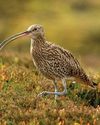
United we stand
Following United Utilities' decision to end grouse shooting on its land, Lindsay Waddell asks what will happen if we ignore our vital moors
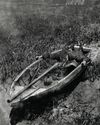
Serious matters
An old gamebook prompts a contemplation on punt-gunning
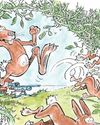
They're not always as easy as they seem
While coneys of the furry variety don't pose a problem for Blue Zulu, he's left frustrated once again by bolting bunnies of the clay sort
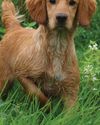
Debutant gundogs
There's lots to think about when it comes to making the decision about when to introduce your dog to shooting
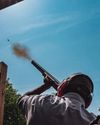
When the going gets rough
Al Gabriel returns to the West London Shooting School to brush up on his rough shooting technique
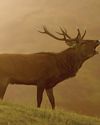
The Field Guide To British Deer - BDS 60th Anniversary Edition
In this excerpt from the 60th anniversary edition of the BDS's Field Guide To British Deer, Charles Smith-Jones considers the noise they make
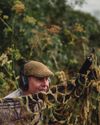
A step too far?
Simon Garnham wonders whether a new dog, a new gun and two different fields in need of protection might have been asking too much for one afternoon's work
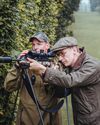
Two bucks before breakfast
A journey from old South London to rural Hertfordshire to stalk muntjac suggests that the two aren't as far detached as they might seem
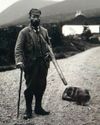
Stalking Diary
Stalkers can be a sentimental bunch, and they often carry a huge attachment to their hill
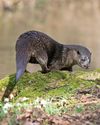
Gamekeeper
Alan Edwards believes unique, private experiences can help keepers become more competent and passionate custodians of the countryside